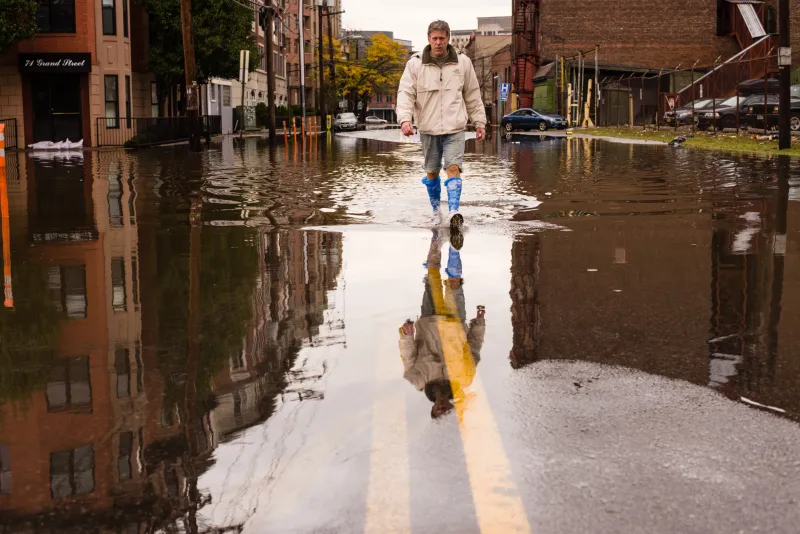Protect yourself from post-disaster scams

As hurricane season comes to a close, many families are still reeling from the devastation left by some of the worst storms seen in recent history. While SAFE Federal Credit Union has seen communities come together, these situations attract scammers looking to take advantage of the vulnerable. Let's review some red flags that can help you recognize their tricks and protect yourself from post-disaster scams.
Beware of immediate cleanup and repair promises
Be skeptical of anyone promising immediate cleanup and debris removal or repairs. Some may quote outrageous prices, demand upfront payment, or lack the necessary skills. Don't believe any promises that aren't in writing or backed by licensed and insured professionals. If you're still unsure, be sure to consult your local credit union for advice on selecting trustworthy professionals for the job.
Verify credentials
Before you pay, ask for IDs, licenses, and proof of insurance. It's essential to check out any contractors before you hire them. This will help you avoid potential scams or unskilled work.
Use safe payment methods
Avoid paying by wire transfer, gift card, cryptocurrency, or cash. Scammers prefer these methods as they can quickly obtain your money, making it nearly impossible for you to get it back. Also, never make the final payment until the work is done, and you're satisfied.
Protect your personal information
Be careful about sharing your personal information. Scammers may pose as government officials and demand money or your credit card, bank account, or Social Security number. Remember, legitimate entities will never ask for these details out of context.
Understand FEMA's protocols
Know that FEMA doesn't charge application fees. If someone wants money to help you qualify for FEMA funds, it's probably a scam. Only use official FEMA channels for assistance.
Beware of rental scams
Be cautious of rental listings that demand security deposits or rent before you meet or sign a lease. It's best to meet in person and view the property before making any commitments.
Spot disaster-related charity scams
In the aftermath of disasters, many fake charities emerge. Do your research before donating to ensure your money goes to a legitimate cause and not into the pockets of scammers. To verify if a charity is legitimate, check if it's registered as a 501(c)(3) organization with the IRS.
Get professional advice
Consult a lawyer or a trusted professional before signing any contract, especially if it involves a significant amount of money. They can help you understand the terms and avoid potential pitfalls.
Report Scams
If you suspect that a scam has targeted you, report it to your local law enforcement and the Federal Trade Commission. This will help protect others from falling victim to the same scam.
Scammers thrive on chaos, but you have the tools to stay one step ahead. Visit our SAFE Aware webpage for more ways to stay informed and vigilant against fraudsters. And, remember, your SAFE family is here to help if you need advice and support!




